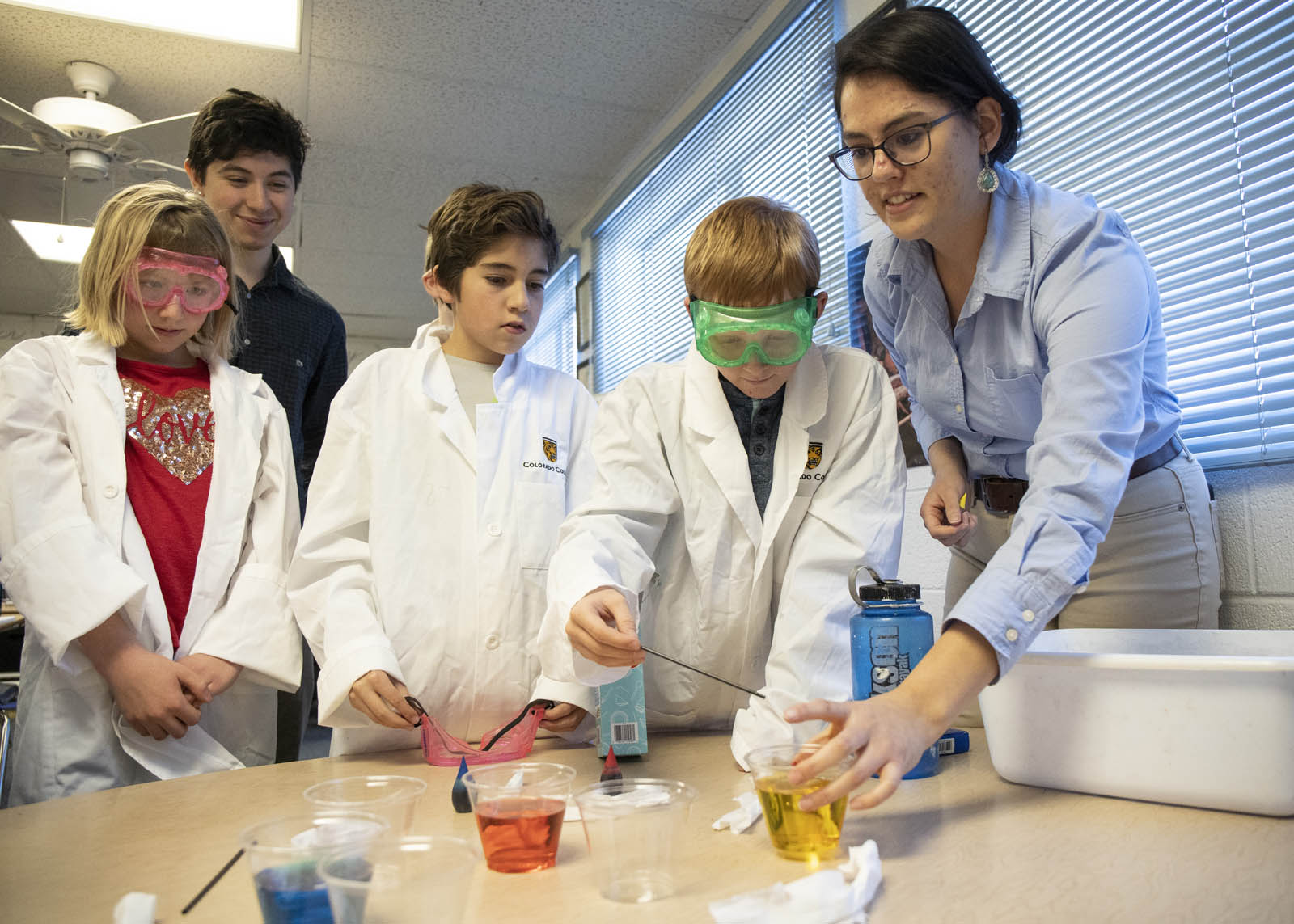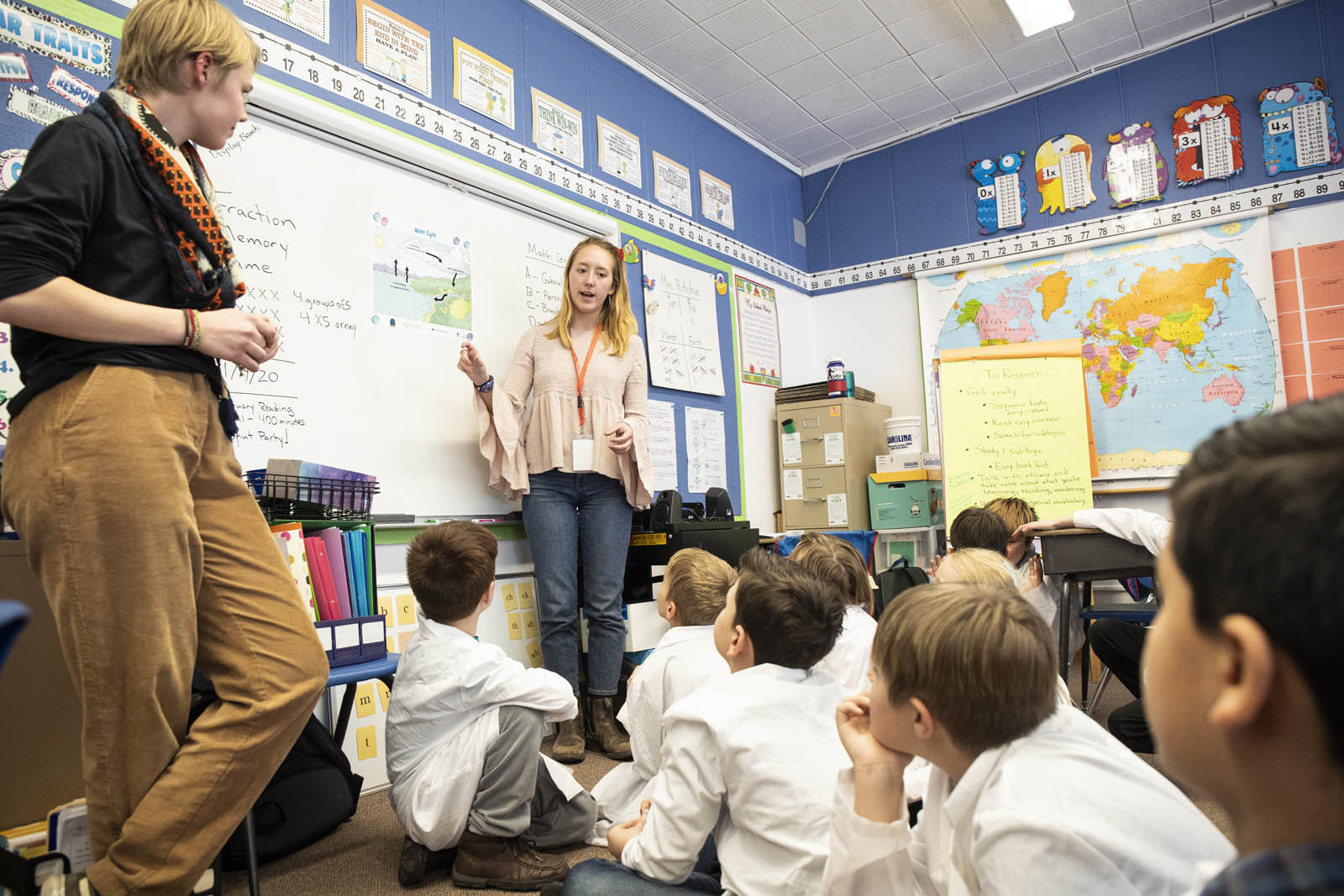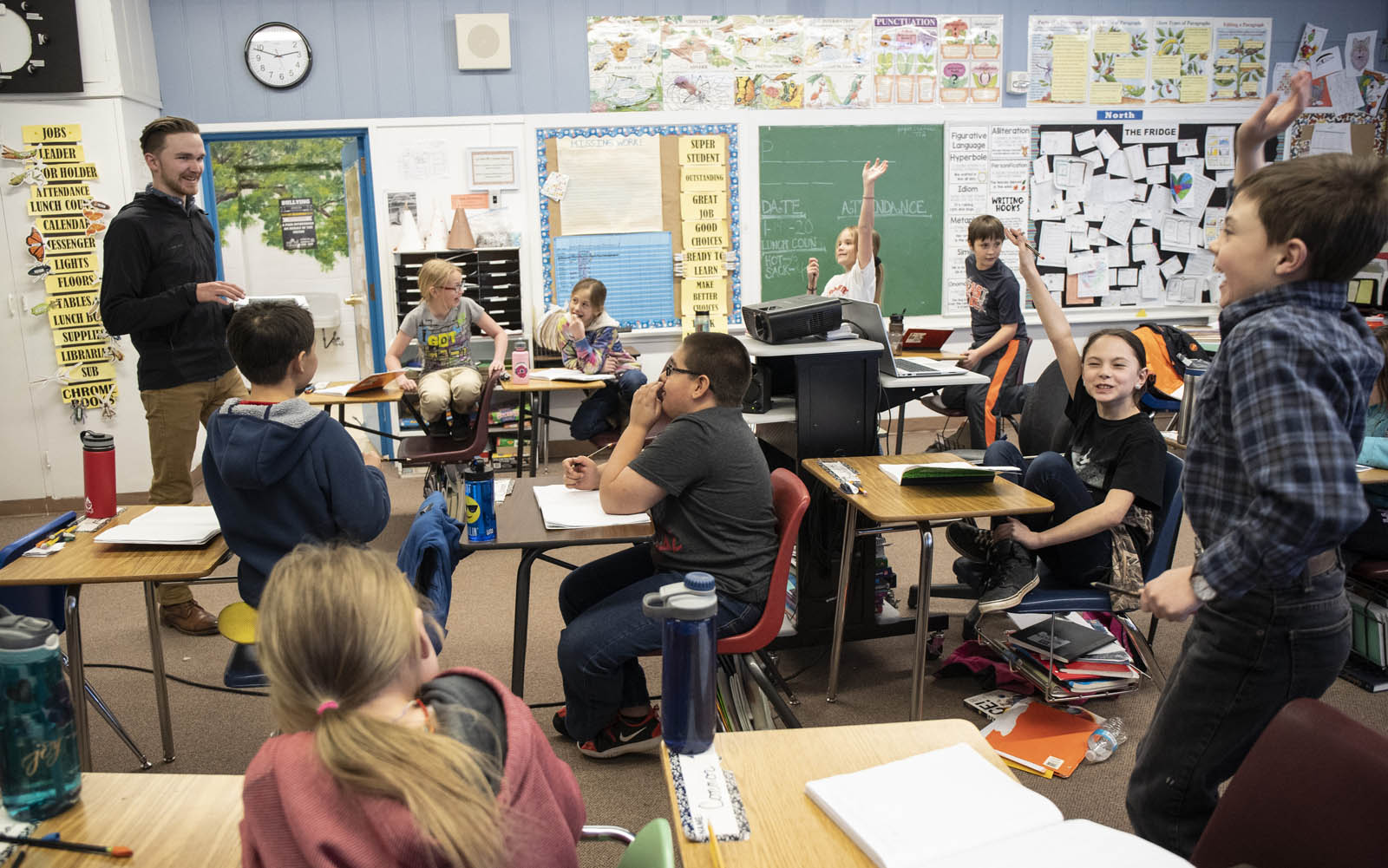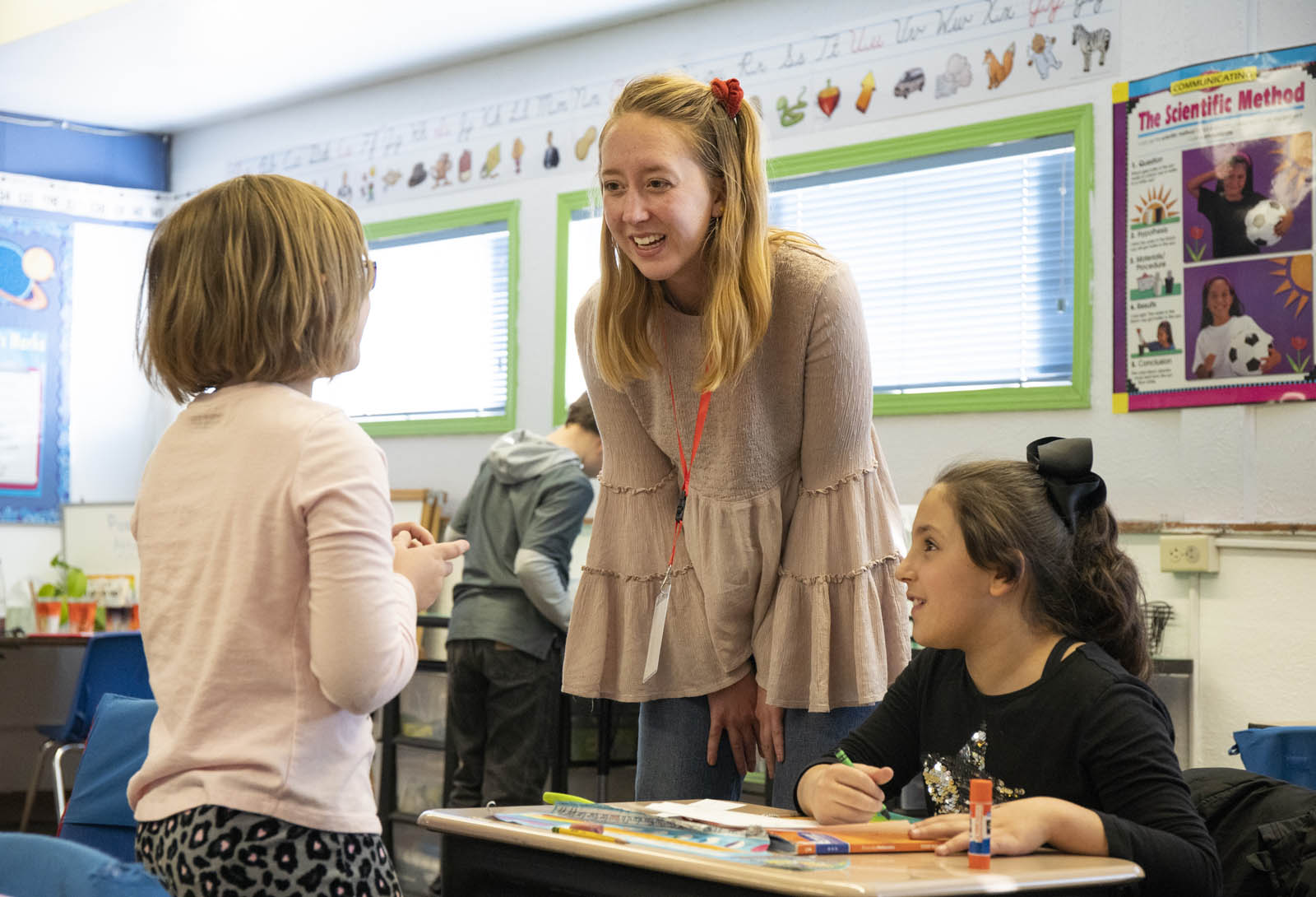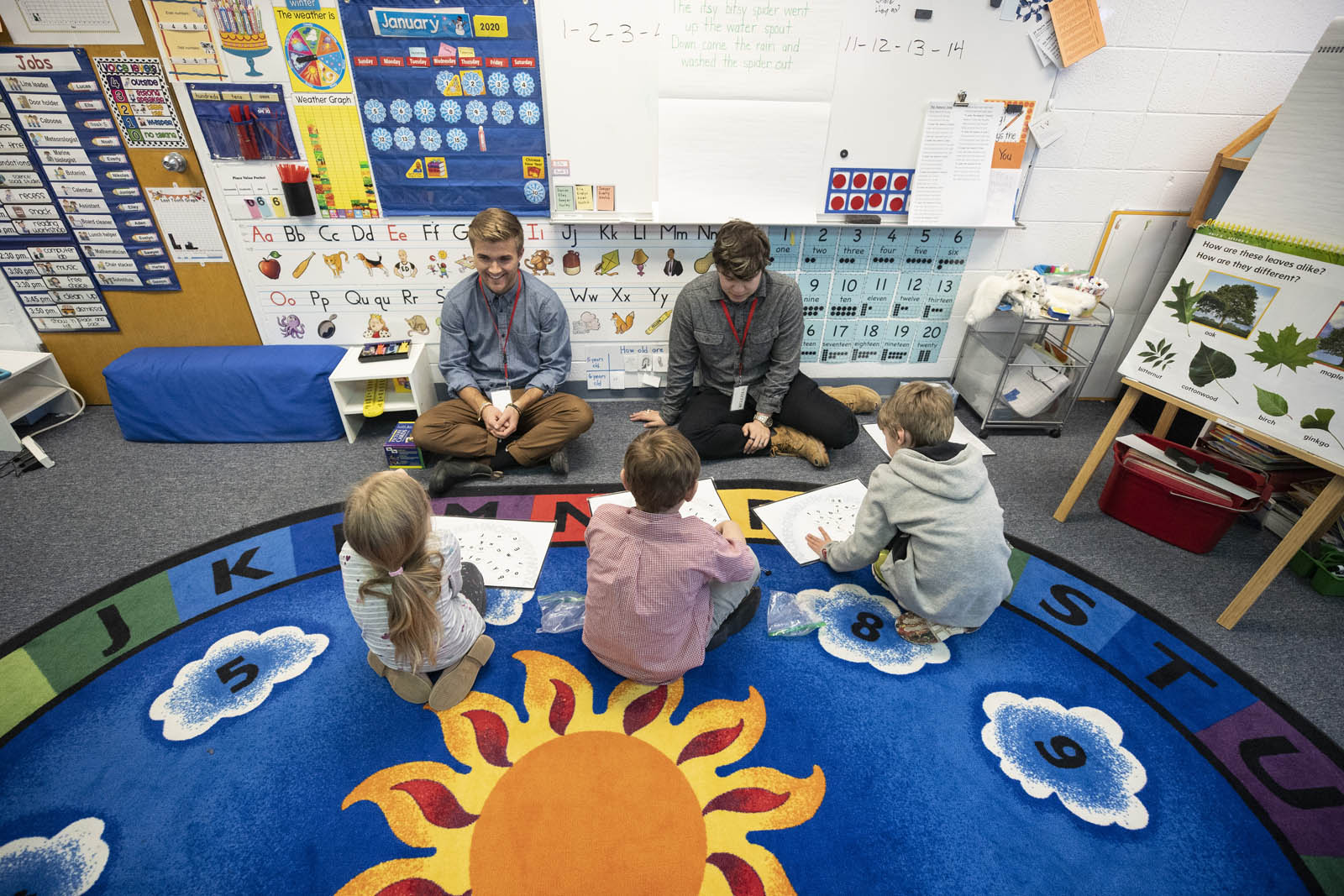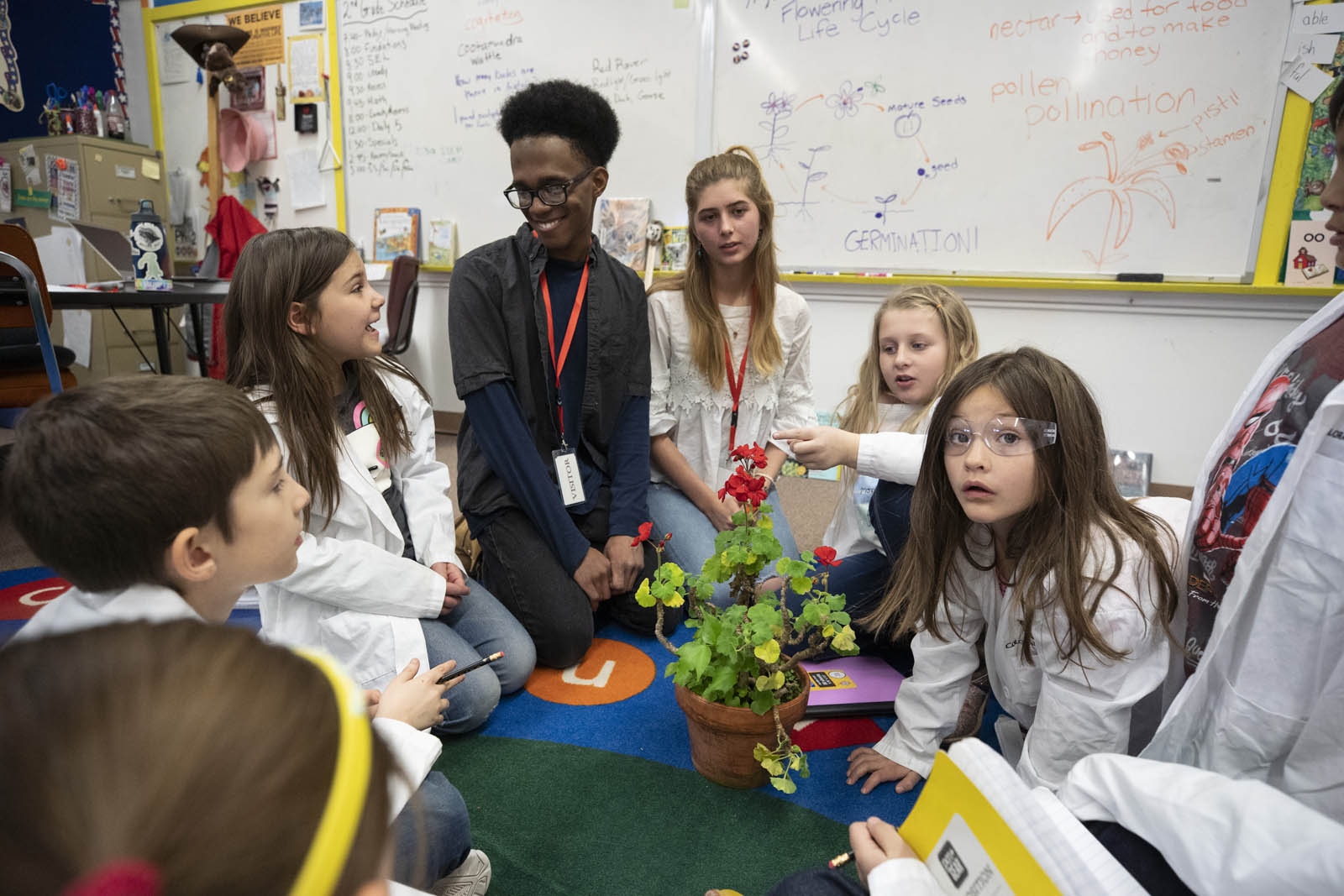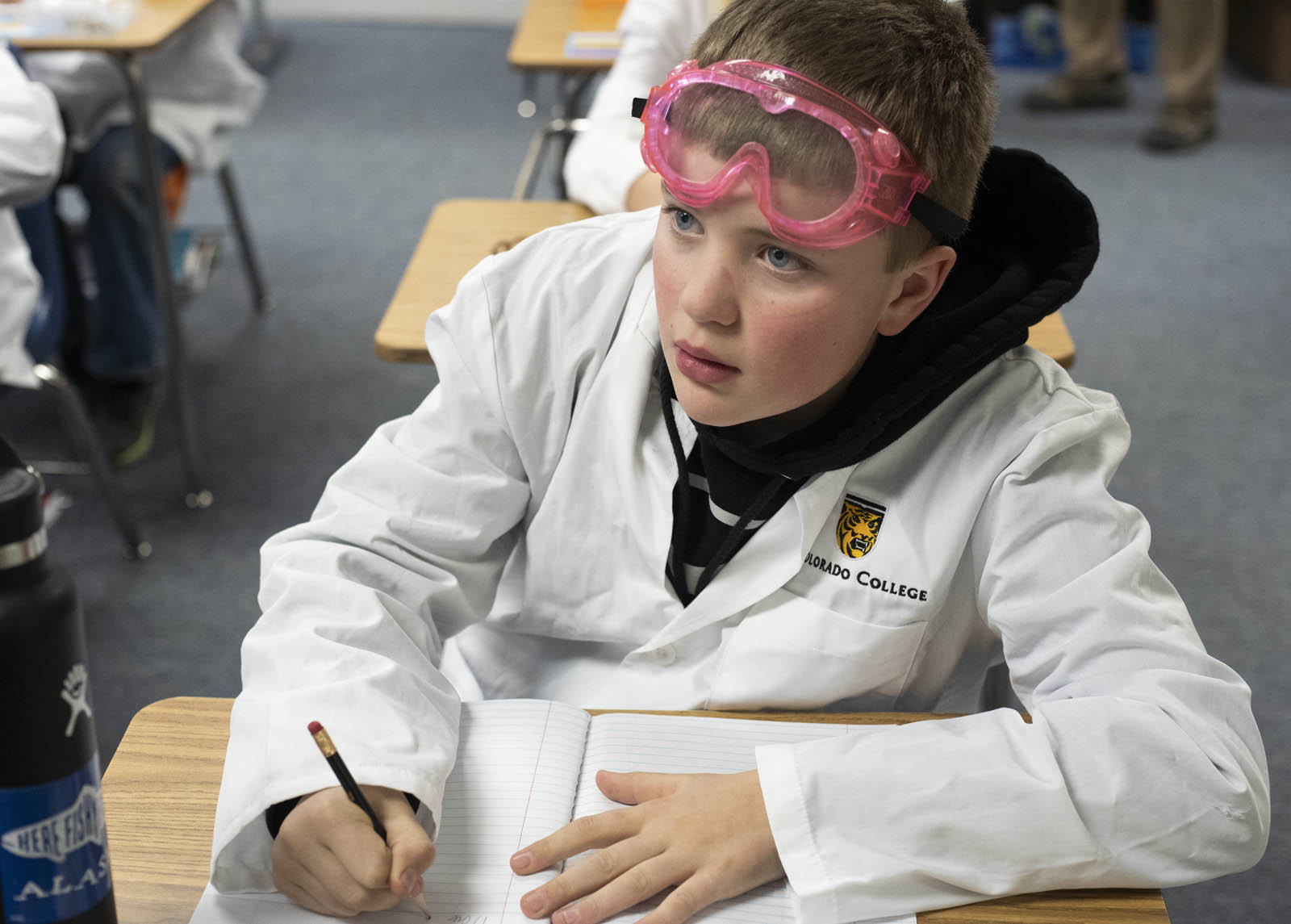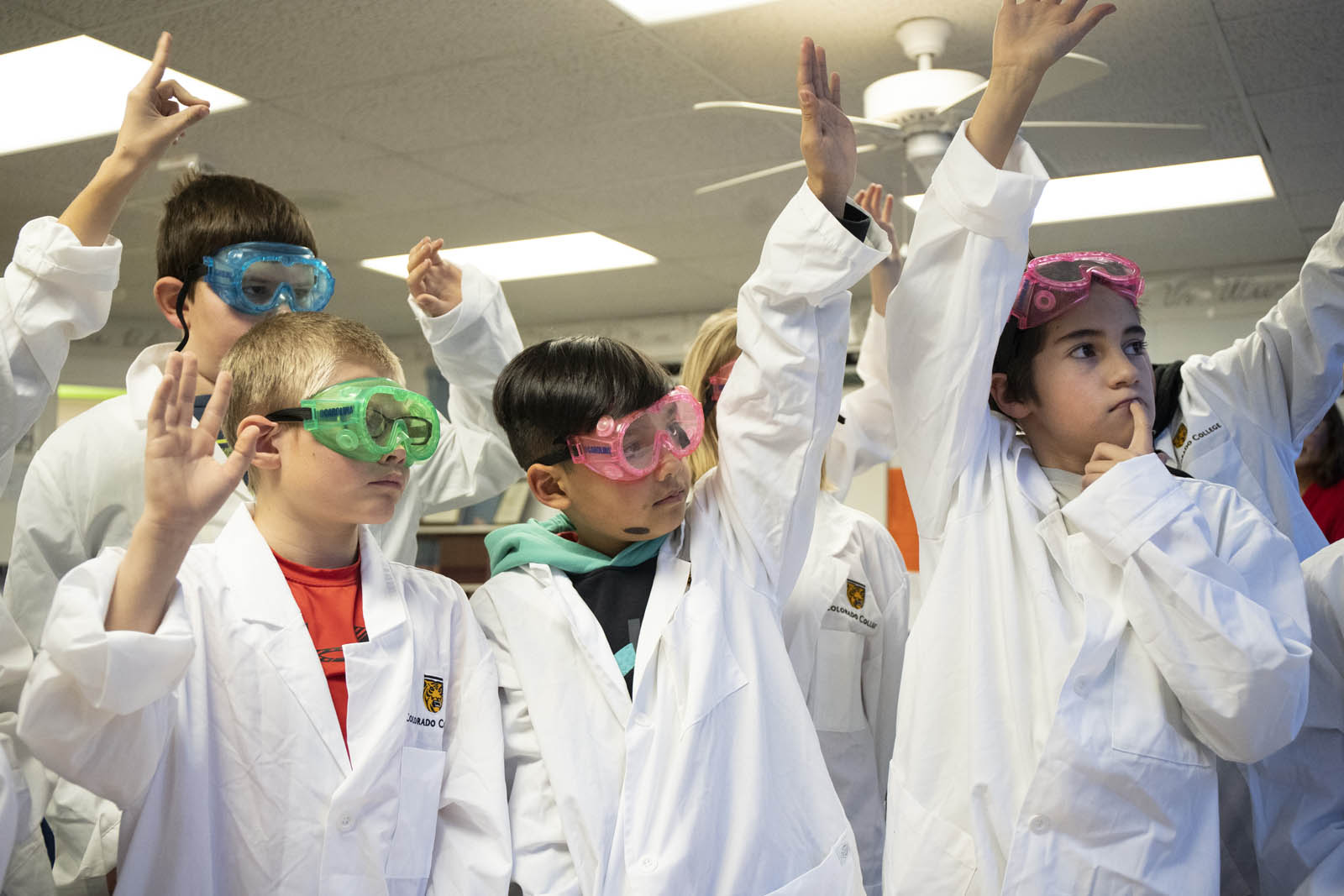By Jennifer Coombes
January's Dynamic Half Block seems years ago. It was a calmer time when the world and students at Colorado College were only slightly aware that something called the novel Coronavirus was ravaging parts of China. Little did we know that just two months later, faculty and staff would be working remotely and students' classes would be moved to distance learning.
In January, an enthusiastic Professor of Education Mike Taber drove a van full of Colorado College science and education students in his Teaching Elementary Science class out of Colorado Springs and south down Interstate Highway 25 for two hours. Past the small Safeway grocery store in Walsenburg, Colorado, they curved and glided down and into a rural bowl-shaped valley where deer were grazing along the two-lane highway that overlooked the town of La Veta. The main street through town was almost entirely closed for the winter season. A van full of college students certainly drew attention. It seemed the entire town was aware that guests from Colorado College were coming and planned to teach science at the district's only elementary school.
Like many rural communities, the town of La Veta, Colorado, has one elementary, middle, and high school that make up its school district. That means this rural district has one fifth-grade teacher who teaches science to a class of 12 boys and one girl. (There was a second girl but the family moved away.) Being an elementary school science teacher in La Veta (or at any rural Colorado school) can be a pretty lonesome task. Taber is hoping to help the district develop an engaging curriculum for science education using CC students' passion for science and education as models for how the lessons can be created and taught.
"The fifth-grade teacher has no one that she can bounce ideas off of or collaborate with," says Taber. "Very few teachers have science degrees. When we asked 'What are your needs?' they said 'Learning how to teach science'."
It is clear that there is a hunger for science lessons, both from the teachers and the students at La Veta Elementary School. In one classroom, Michael Brown '22 and Jia Mei '21 are paired up with first-graders to teach a lesson on how sound travels through different types of surfaces using bags of saline solution and stethoscopes. As the teacher of the class closely observes the lesson in the back of the room, Brown and Mei move easily among the grouped students, who wear child-sized CC white lab jackets. The miniature scientists excitedly listen and describe what they are hearing. Brown finishes the lesson with a group discussion where he asks probing questions.
"First-graders are wonderful and don't let anyone tell you anything different," says Brown. He and Mei spent a week learning how to write a lesson plan and then learned from their classroom experiences how to go back and evaluate and review how they wanted the lessons to go.
For Mei, the effort and planning was worth the unique experience of learning the craft of teaching in such an intense amount of time. At Colorado College students can choose to extend their Winter Break or return early and take a nine-day Half-Block class. Some courses, like Taber's, are not for credit but rather are designed to gain valuable skills or work-related knowledge. Taber's Dynamic Half-Block class is a form of transformative service learning, where CC students are given the opportunity to learn from rural teachers and give back with their own knowledge and skills. The result is for participants to challenge current assumptions about rural schools and an elite liberal arts institution, and then act upon those changes.
"Vacation time is overrated," says Mei. "I just feel so happy and it is just super rewarding."
In another classroom Danny Zamudio '21 and Carissa Sherman '21 work with the district's only fifth-grade class. Exclamations of joy erupt in the room and set the tone for the lesson as Sherman goes over the rules of safety and hands out brightly colored neon lab goggles and CC monogrammed lab jackets. As they snap the goggles onto their heads, the students give Sherman their full attention with their pencils poised above notebooks and cowboy boots tucked under desks. The students learn how to make a hypothesis based on a science experiment that is also seemingly a magic trick using food coloring, strips of paper, and cups of water. The room is fully engaged. The tools that CC students are using for the experiments, the lesson plans, and the purchased curriculum provided by CC will all stay so that La Veta teachers can continue to engage their students in the joys of science.
It is a two-way street though. For Taber, the lessons that can be taken from some of the successes in rural education is what has him hooked on the partnership.
"There are 174 counties in Colorado and 104 are classified as rural," says Taber. "I feel like there has to be a shift. It has always been from city to rural when it comes to state education decision making. Why can't it be rural to city? I want to look at what rural school leadership is doing and why they are successful in ways that cities are not. I want to know what we can learn."
Taber believes one of the biggest advantages rural districts have is their ability to support and empower their teachers. If it had not been for the empowerment by the school district, Taber never would have become involved with La Veta School district. The district's superintendent supported and empowered Anne Speroni MAT '19, a literacy specialist, to enroll in and get her MAT degree at CC so that she could better serve students. Speroni's degree work at CC meant she crossed paths with Taber who started making visits with CC students.
"We are very much in the community," Taber says. "I believe in the idea that learning is contextual and context means community." For this reason, after a full day of assisting teachers, preparing lessons plans and teaching science lessons, CC students gather in the school's cafeteria and enjoy meals brought in by the community as well as take in a local high school basketball game in the evenings. The students are fully embedded into La Veta for the two weeks that they are in town.
"Tears will be flowing when these kids see our students leave," says Taber. He has seen it before and will see it again. This program is in its second year with plans for expansion, providing Taber and La Veta School District can secure funding. This Half-Block was funded by the Colorado College Noyce Scholarship Program, a National Science Foundation grant Taber received in 2015. Taber says his hopes and dreams are that a CC student engages with and influences a La Veta student to see Colorado College as a place where they can grow and thrive and possibly become an educator who will go back and start that cycle all over again.
Jennifer Coombes is the photographer and photo editor at Colorado College.




